Benchmarks: Warhammer, The Division, Battlefield 1
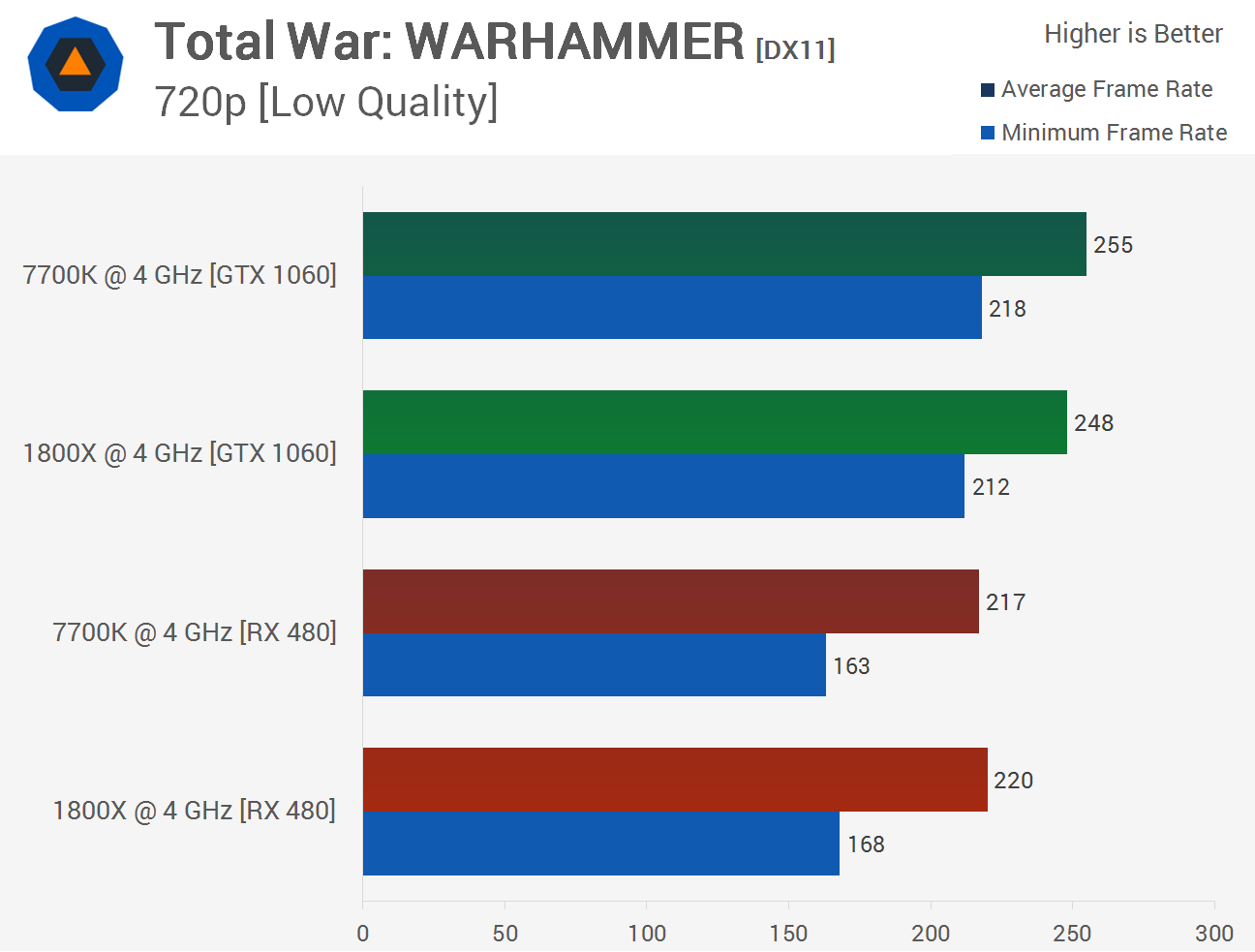
Moving on, we have Total War: Warhammer and using DirectX 11 we find that the 7700K does slightly better with the GTX 1060 while the 1800X was a fraction faster with the RX 480. These aren't exactly decisive margins though, so let's check out the DX12 figures.
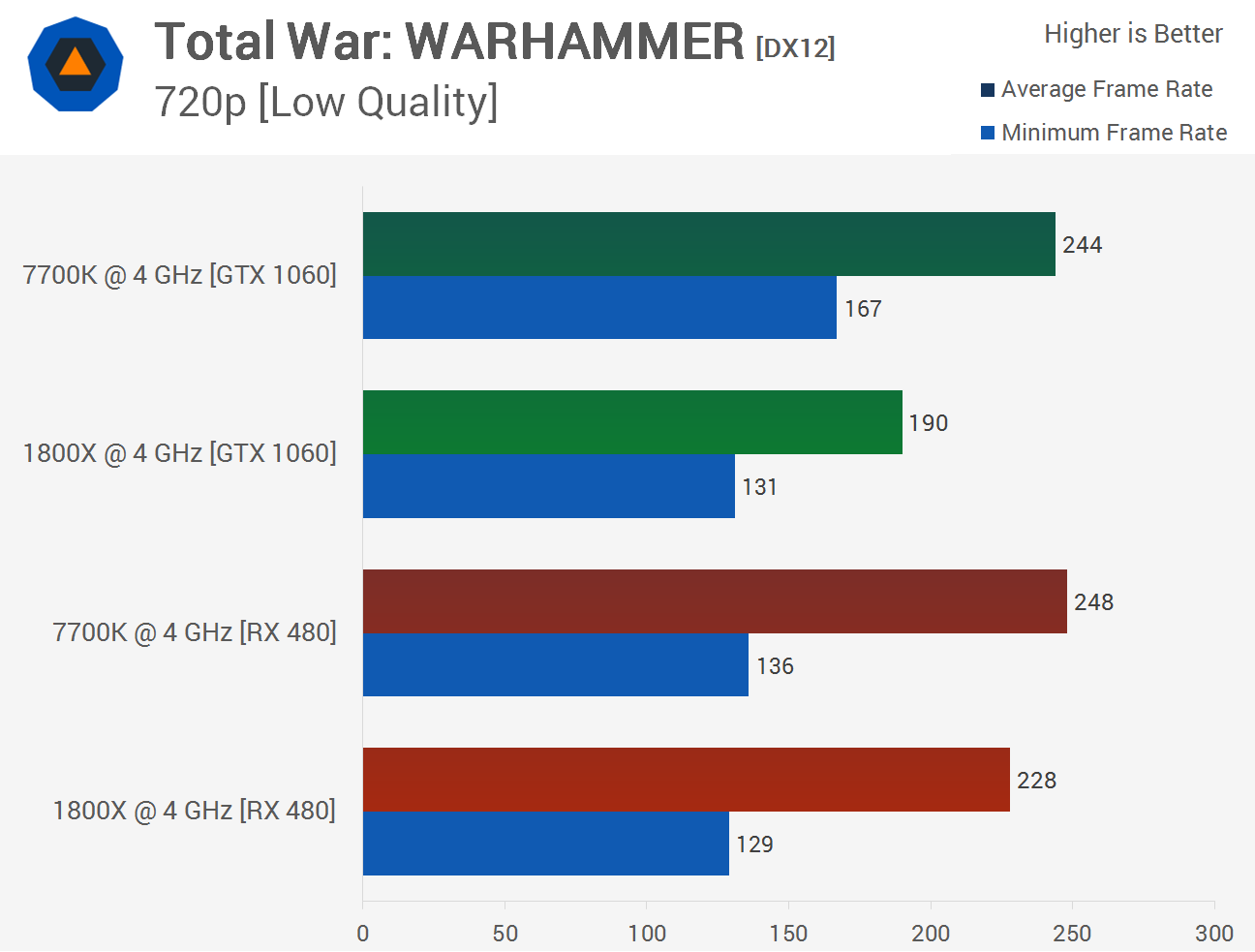
Ryzen looks significantly more competitive here when using the RX 480 – this is the most extreme example yet. The 7700K was 28% faster on average and 27% faster at minimum when using the GTX 1060, which certainly explains our Titan XP results seen previously.
Moving to the RX 480, Kaby Lake is now just 9% faster on average and only 5% faster for the minimum. That's a seriously huge reduction in margin though I should note that the minimum frame rate was still slightly higher with the GTX 1060 for the Ryzen processor.
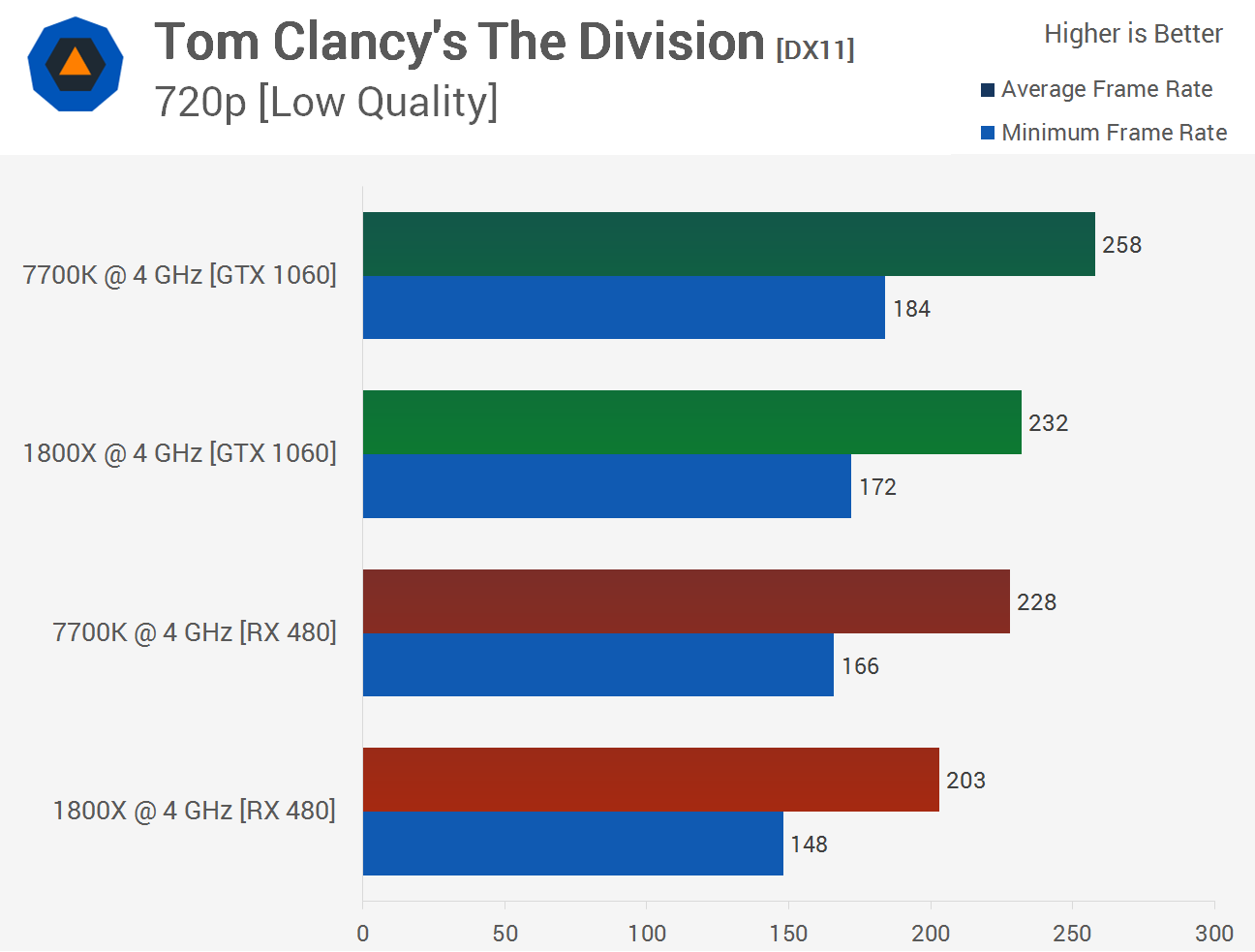
Using the GTX 1060, the 7700K was 11% faster for the average and 7% faster for the minimum. Swapping to the RX 480, that average grew slightly to 12% while the minimum blew out to a 12% margin.
So when using DX11 in The Division, Ryzen fares better using hardware from the green team.
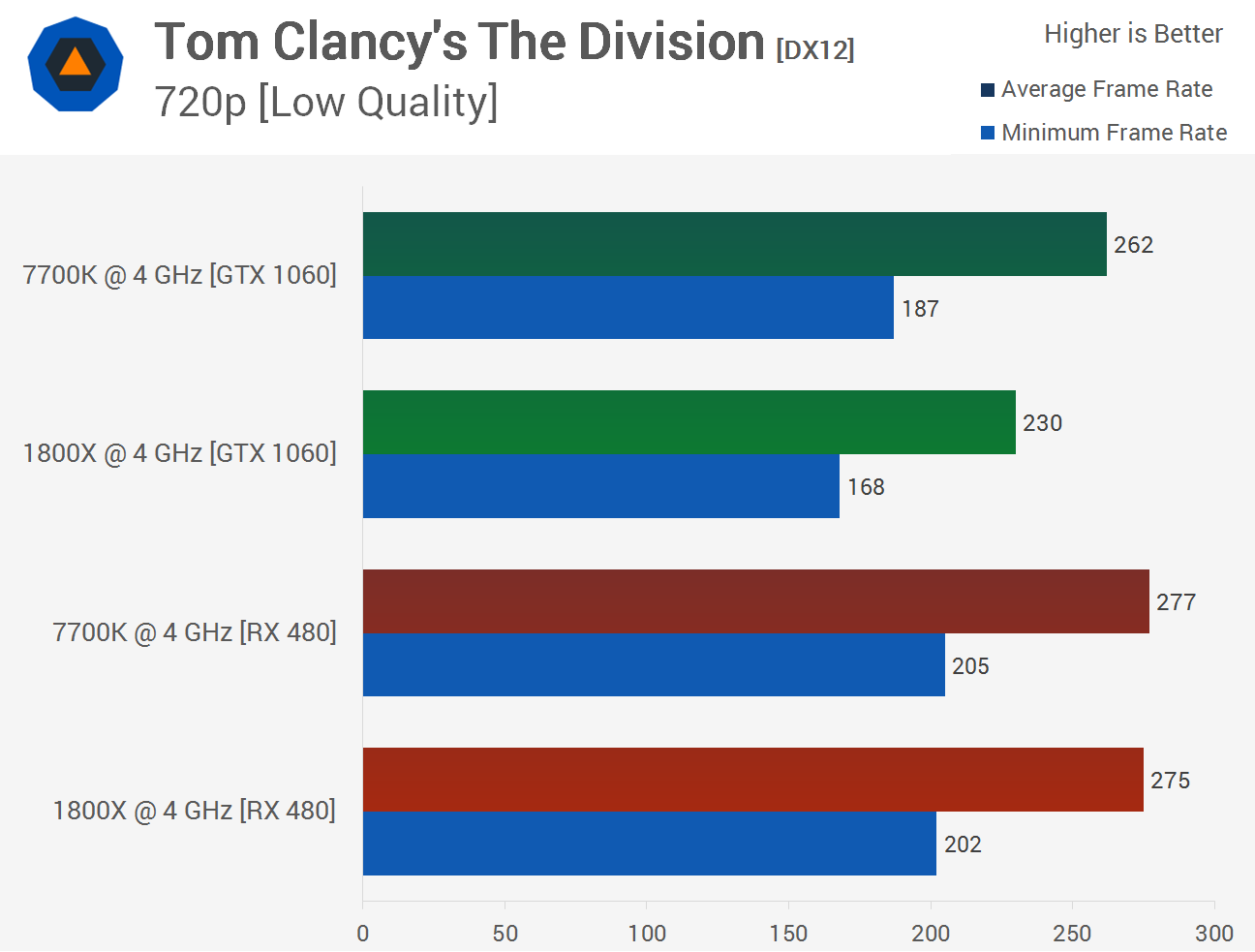
That said, we find a drastically different story when moving to the DirectX 12 numbers. Once again, using the GTX 1060 the 7700K was faster than the 1800X, this time 14% for the average and 11% for the minimum.
Drop in the RX 480, and interestingly enough we find the 1800X matching the 7700K with roughly the same performance.
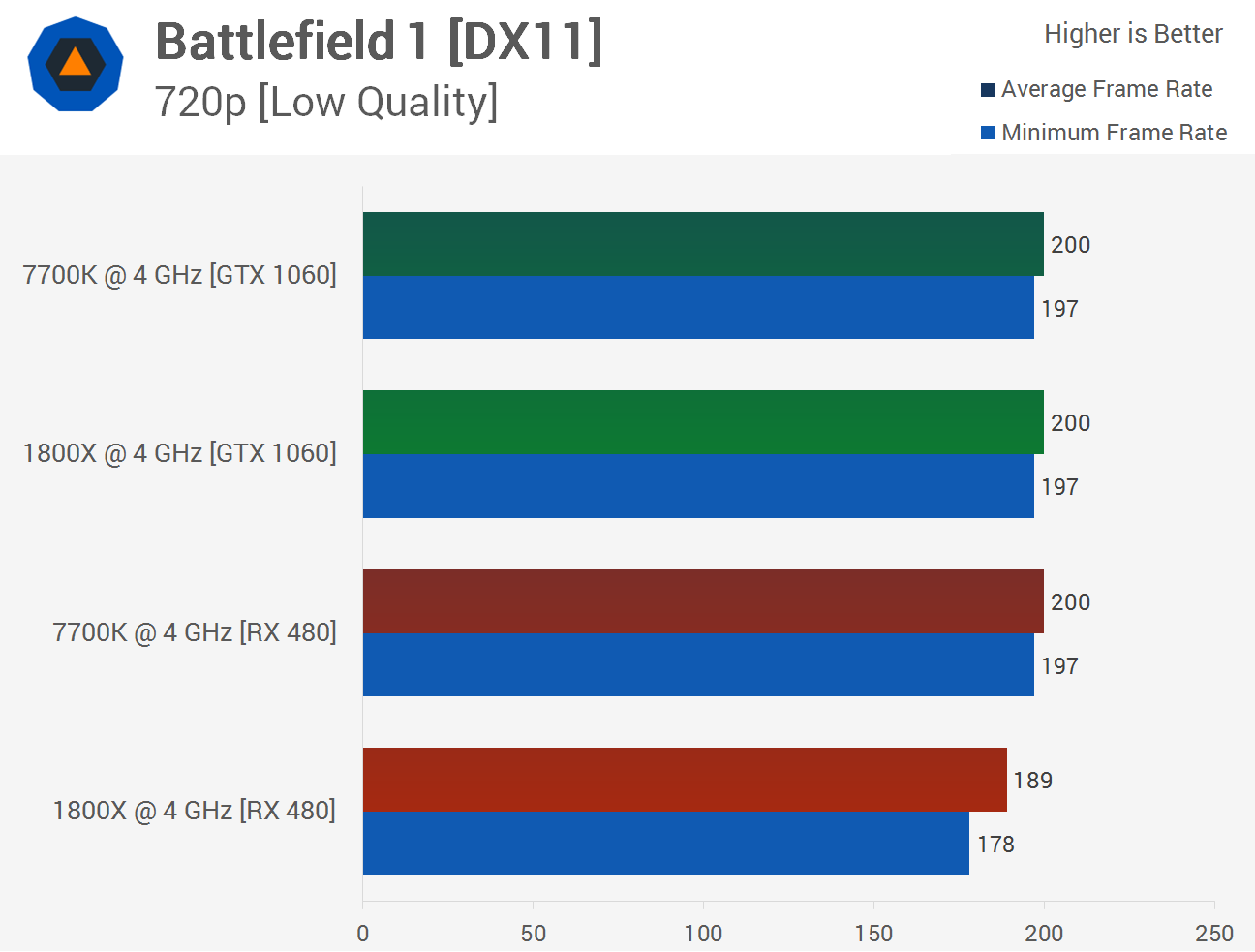
Battlefield 1 has a 200 fps cap and as a you can see the GTX 1060 has no trouble reaching that with either processor. The 1800X does slip behind but for the most part these results were pretty uneventful. Battlefield's DX12 performance is still a bit sketchy so I skipped that testing for now.
